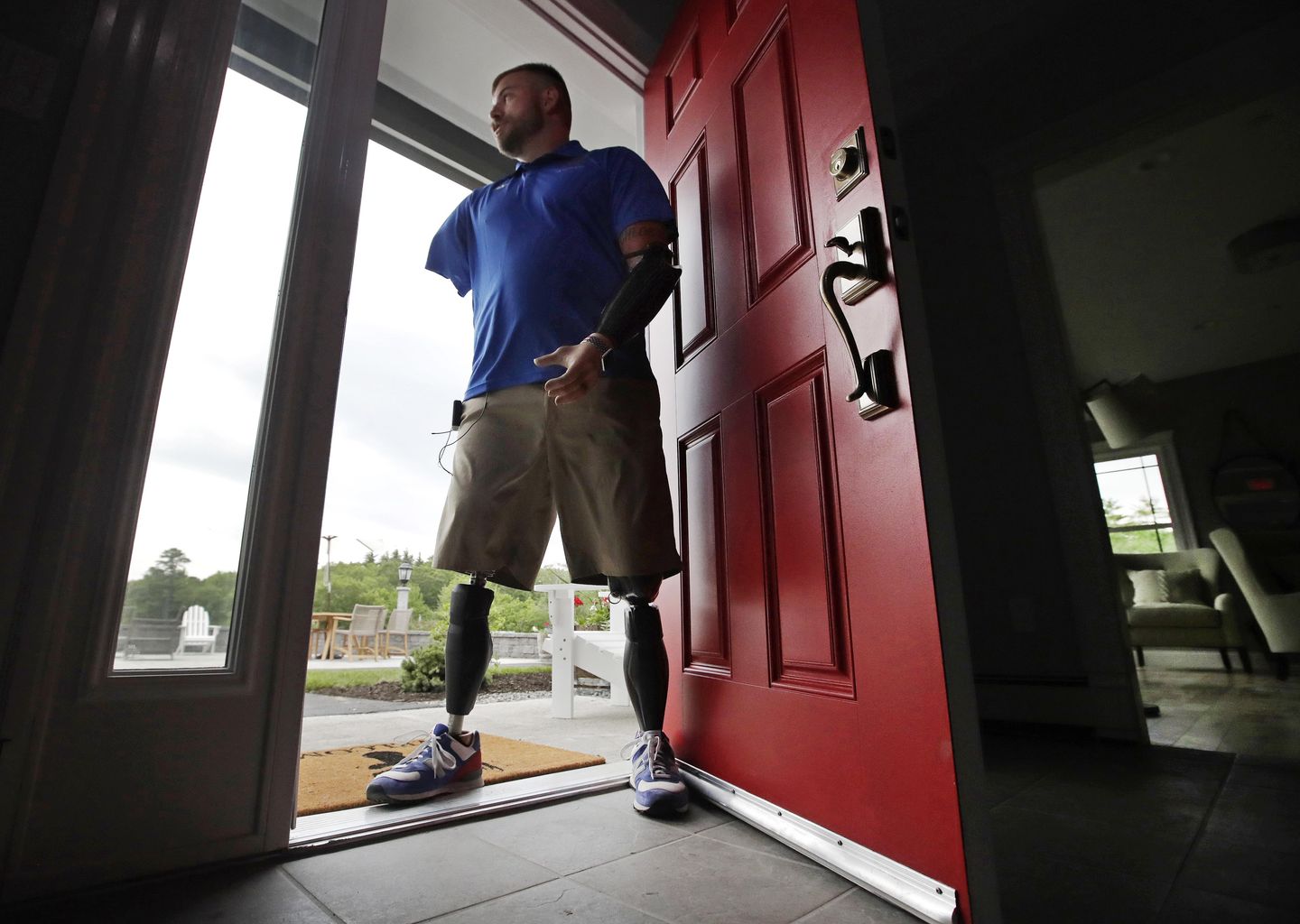
Thousands of troops who were hurt in combat and medically retired from the military are forced to forfeit a portion of the benefits they earned for their service. That’s because they didn’t spend at least 20 years in uniform, whether or not it was their choice.
They call it the “wounded veterans tax.”
About 30 veterans met Wednesday on Capitol Hill to urge Congress to finally pass the Major Richard Star Act, which would allow about 54,000 combat-disabled veterans to receive both full retirement and disability pay.
The law currently requires a dollar-for-dollar offset of disability compensation for retirement pay. Service members with fewer than 20 years of service and a disability rating of less than 50% see a dollar taken from their retirement benefits for every dollar they receive in disability pay.
“Some would say wounded veterans are ‘double-dipping’ — receiving both a [Department of Veterans Affairs] disability compensation and [Defense Department] retirement pay. Others would say it’s too expensive,” said Jose Ramos, who lost an arm and suffered other serious injuries during his third tour in Iraq. “How much is too much for those who have sacrificed their mind, body and soul?”
Mr. Ramos is the vice president of government and community relations for the Wounded Warrior Project, a veterans advocacy group. On average, the wounded veterans tax takes about $1,200 per month from every paycheck, he said.
“That’s a substantial amount of money. That impacts your ability to get groceries, your ability to take care of your family and your ability to pay the bills,” Mr. Ramos said.
Veterans rights advocates push back on the claim that the wounded veterans are double-dipping because military retirement and disability pay are funded through different sources.
Marine Corps veteran Jamel Daniels joined the military after the 9/11 attacks, saying enlisting in the military was the “best thing he ever did.” He was injured during his last mission in Iraq in 2005 when an improvised explosive device detonated under his vehicle. Out of five people in the vehicle, Mr. Daniels was one of two survivors. He lost a leg.
“My story is not unique. Every one of the 54,000 veterans has a similar story,” he said. “Our country promised to take care of us, whether it was physical injuries, traumatic brain injuries or post-traumatic stress disorder.”
Mr. Daniels said his fellow veterans owe it to those coming after them to ensure they won’t ever be stuck with the same wounded veterans tax.
“We need to show them that if something happens to them in the line of duty, our country will be there to support them and treat them fairly,” he said. “We don’t have time for more speeches. [Congress needs to] pass the Major Richard Star Act now.”
Army veteran Dan Nevins was wounded in February 2004 in Iraq when an improvised explosive device detonated beneath his vehicle. He suffered a traumatic brain injury and the loss of his left leg below the knee. After several years of recurring infections and surgeries. Mr. Nevins chose to have his right leg removed as well, making him a bilateral amputee.
“For someone like me, [$1,200] is a significant portion of a mortgage payment. For a lot of people, it’s their car payment or insurance,” said Mr. Nevins, who was medically retired after 15 years of service. “This is not some windfall of cash or a brand new benefit. It’s a functional level of dollars to live a better, more restored life.”
Sen. Richard Blumenthal, the Connecticut Democrat who sponsored the bill, said the measure would correct one of the deepest injustices in the country’s current veterans’ disability system.
“It is unacceptable that tens of thousands of combat-injured veterans are denied the full benefits they earned,” said Mr. Blumenthal, the top Democrat on the Senate Veterans Affairs Committee. “Our bipartisan bill will right this long-standing injustice and finally provide these military retirees who have already sacrificed so much for their full VA disability and Defense Department retirement payments.”
The legislation has 271 co-sponsors in the House and 71 in the Senate, including Republicans such as Sens. Rick Scott of Florida and Ted Cruz of Texas and Democrats such as Charles E. Schumer of New York and Elizabeth Warren of Massachusetts.
“Bills don’t get that number of co-sponsors these days — evenly divided between Republicans and Democrats — unless they are compelling and undeniable in their justice,” Mr. Blumenthal said.
The veterans groups and their supporters on Capitol Hill have been trying to get the Major Richard Star Act passed for about five years. It was named in honor of a former Army combat engineer with multiple overseas deployments. He eventually developed stage 4 lung cancer linked to burn pit exposure. His advocacy work after his medical retirement focused on improving benefits for disabled veterans.
“Passing the Major Richard Star Act would provide meaningful financial relief for veterans who are still living with the consequences of their injuries,” Mr. Nevins said. “It’s a small cost to the government but a huge step toward treating our veterans with the dignity and respect that they’ve earned.”
Mr. Blumenthal, a Marine Corps veteran, said he will offer the measure as an amendment to this year’s National Defense Authorization Act this summer.
“If we don’t get it done as an amendment to the NDAA, we’ll make it a stand-alone bill,” he said. “It is the number one job for the Armed Services Committee, and it is the No. 1 job for the United States Congress.”
Mr. Nevins said life is good for him, but it’s not easy. As a double amputee, just going through the normal daily motions requires more effort than before he was wounded. He also suffers from physical discomfort and constant pain.
“There are no good reasons not to pass this bill,” he said. “When you’re in a fight, you’re really fighting for those on your left and right. That’s why I’m here.”












